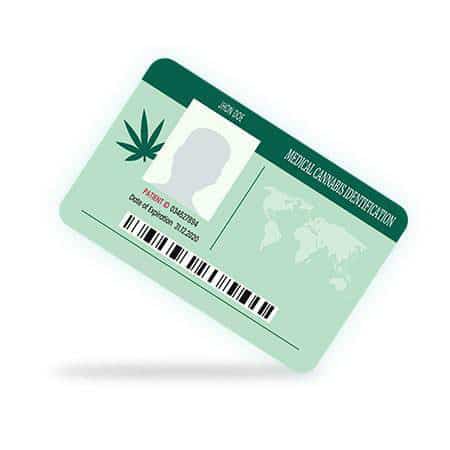A medical cannabis card enables a patient with a doctor’s recommendation to obtain, possess or cultivate marijuana for medicinal use in states that allow it. It also allows patients to access products with higher potencies of THC and CBD, which are better for treating certain medical conditions.
States require persons seeking a medical marijuana card to obtain certification from a healthcare practitioner registered and approved to prescribe controlled substances by the state. These providers include physicians, physician assistants, nurse practitioners, podiatrists, dentists, and midwives.
Medicinal Purpose
The purpose of a medical cannabis card is to help patients access medicine based on their specific needs. If you’re diagnosed with a qualifying condition, your doctor can recommend marijuana to treat your symptoms. This medicine can be an alternative to pharmaceuticals that often have harmful side effects and are ineffective for specific conditions.
A medical cannabis card allows you to purchase the product legally and at lower prices than consumers who access it from recreational stores. It makes it an affordable option for many patients.
In some states, medical patients are also granted priority access to cannabis if the market ever faces a shortage of products. It can allow them to buy more and get the highest medicine concentration available at a given time.
Another reason to get a medical card is that it can help you avoid much of the tax burden. Depending on your state’s laws, you can save between 5 and 10 percent on every purchase.
Obtaining your medical cannabis card is simple and fast. Once your certification is approved, you can register online and purchase your medicine with a printout of your temporary ID card. You can request a renewal consultation with a certified practitioner when your medical certificate expires. This consultation takes place on a secure, bespoke telemedicine platform.
Legal Purpose
A medical cannabis card is a legal document that lets you buy medical marijuana. This legal status is essential to those who use cannabis for medical purposes.
“Having a card gives you the safety net and protections other states don’t provide,” she says. It also allows you to access exclusive medical dispensaries and med products with higher potencies of THC and CBD, which can help treat your condition.
In addition, some states have special laws that protect patients from legal prosecution for using cannabis for medical purposes. It exempts people certified by their doctor from purchasing and using marijuana for medical purposes from criminal penalties.
Moreover, some states have a program compensating registered primary caregivers for the costs of caring for a patient. This compensation does not violate state drug or medical marijuana laws and is generally considered a public benefit to a designated caregiver.
A certified patient can purchase up to a 60-day supply of approved medical cannabis from a registered organization’s dispensing facility. Registered organizations must follow the recommendations or limitations provided by the certifying practitioner.
Recreational Purpose
Medical marijuana cards are designed for patients with a qualifying condition and a doctor’s recommendation. This type of card allows them to purchase high-quality cannabis from dispensaries. It’s a great way to save money by buying cannabis at standardized prices.
Despite being legal in many states, the recreational use of marijuana is not for everyone. It can be dangerous to those who have not experienced users or suffer from certain conditions.
People who suffer from certain diseases or conditions may require higher potencies of THC or CBD to manage their symptoms and prevent side effects. They can find these products at medical dispensaries, where bud-tenders are trained to assist customers with questions about product types and dosages.
Additionally, a medical card offers some unique advantages unavailable to recreational users. For instance, it’s easier for patients to travel to other states with medical cannabis programs if they have their medical cards.
Additionally, a medical card can allow you to have a higher possession limit than recreational users do. While recreational users can only have three ounces of marijuana at a time, registered medical patients can keep up to 60 days’ worth. Moreover, they can grow up to six plants at a time.
Taxes
Just like any other product, cannabis comes with a range of taxes. Different states have different tax rates, which can be a barrier to entry for those wanting to start a marijuana business.
Registered organizations must file a return and pay the tax due by the filing deadline to avoid penalties and interest. They can compute the tax due using our Penalty and Interest Calculator.
In addition, registered organizations must make quarterly (accelerated) estimated payments as of January 1, 2020. Quarterly (accelerated) estimated payments are due on or before the 7th, 15th, 22nd, and the last day of each month that a tax liability occurs. If a quarterly (accelerated) estimated payment is not made, IDOR will notify the taxpayer.




